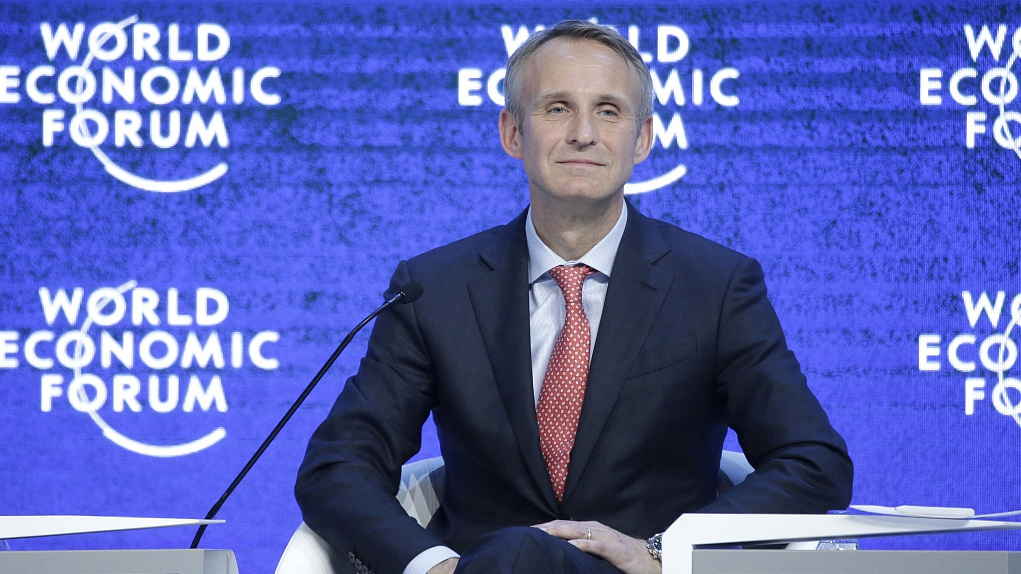
Biz Analysis
20:16, 25-Jan-2019
Manpower Group CEO shares insights on workforce investment, automation impact on employment
CGTN Global Business
04:43

AI, robotics and other forms of smart automation have the potential to bring great economic benefits, but there are also concerns that they may displace many existing jobs. However, Jonas Prising, CEO of Manpower Group, argues that, instead of eliminating jobs, many companies are using technology to expand their workforce.
“What we are seeing is technology is augmenting the capability of humans rather than replacing,” Prising said, “People focus a lot of the discussions around the threat of job destruction, but our researches show that the amount of jobs that are going to be directly eliminated as percentage point on a global scale is quite small. Most companies that are investing in automation are actually going to create more opportunities, to grow their workforce.”
What happens to companies falling behind in the digital race? Prising said that companies definitely need to invest in technology to guarantee their own survival and growth prospects. “We need to think about how to take advantage of technology to upskill and reskill the workforce. That's because while technologies are augmenting the capabilities of human beings, they need greater or different skillsets to take advantage of it. That's why we need to scale up skilling-up and re-skilling efforts in our conversations. That will be a central topic for many years to come for countries and companies that are going through economic transformations,” Prising explained.

Jonas Prising, chief executive officer of Manpower Group Photo: VCG
Jonas Prising, chief executive officer of Manpower Group Photo: VCG
Prising also shared his views on the recent hiring trend amid global geopolitical and geo-economic uncertainties. “Global labor market is still in a good place. The unemployment rate here in Europe in at its 10-year low, in the U.S., 30 to 35 years low. In the rest of the world, the workforce is still growing or stable. Our recently completed survey shows that stable and improved hiring in the next quarter,” Prising said.
Another issue that is on top of the global CEOs to-do list is workforce management. “Our research on companies' investment on workforce this year shows 85% of the employers are willing to spend on training their workers, 65% higher than 20 years ago. That reflects that employers, as they are faced with growing globalization and its impact on their business, they need to put more investment in training their workforce. That's a very noticeable trend we see. Companies are increasingly realizing that their employees are their brand ambassadors. They can produce valuable feedbacks to leadership even if they are world's away,” Prising said.

SITEMAP
Copyright © 2018 CGTN. Beijing ICP prepared NO.16065310-3
Copyright © 2018 CGTN. Beijing ICP prepared NO.16065310-3